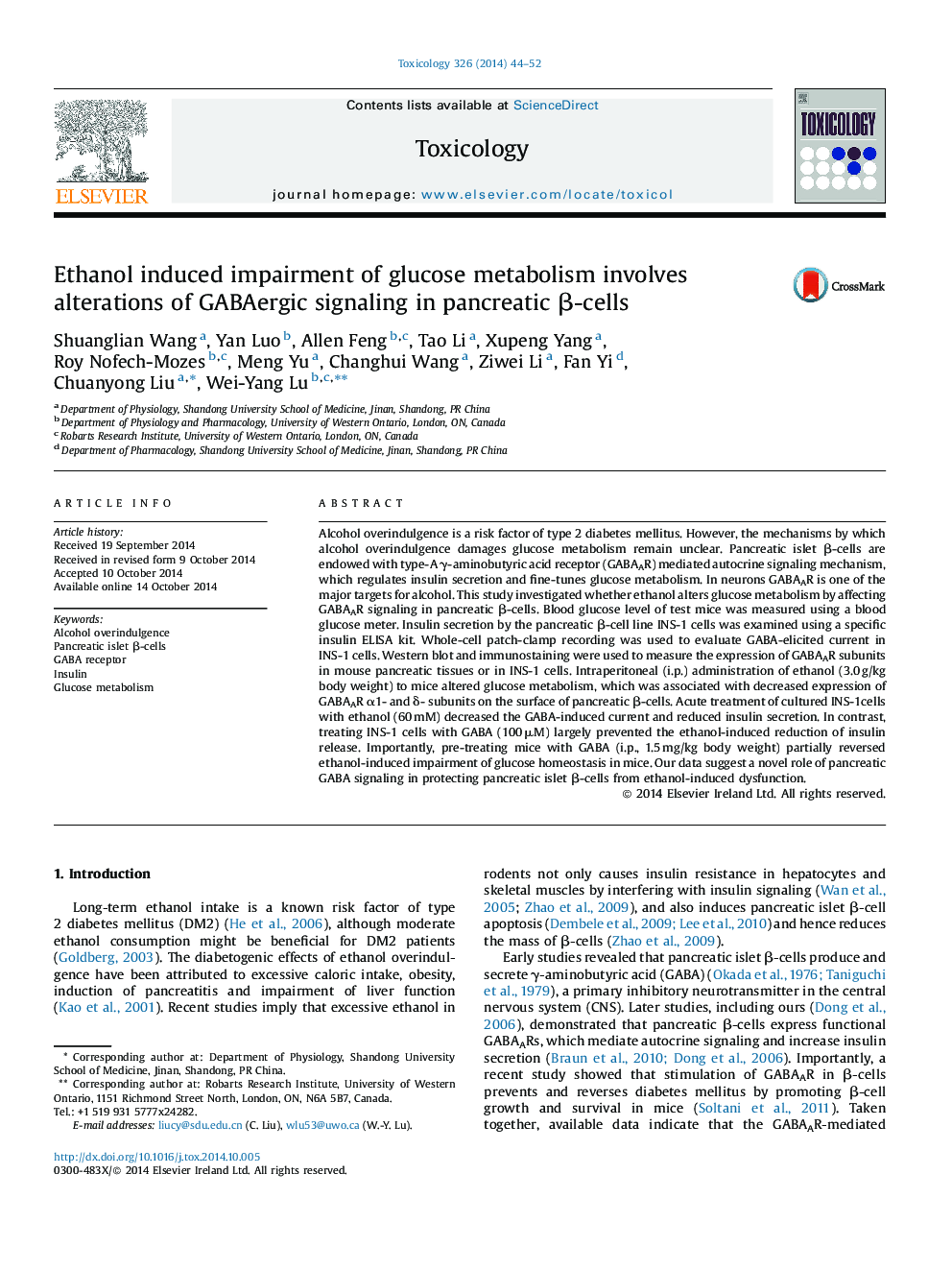| Article ID | Journal | Published Year | Pages | File Type |
|---|---|---|---|---|
| 2595505 | Toxicology | 2014 | 9 Pages |
Alcohol overindulgence is a risk factor of type 2 diabetes mellitus. However, the mechanisms by which alcohol overindulgence damages glucose metabolism remain unclear. Pancreatic islet β-cells are endowed with type-A γ-aminobutyric acid receptor (GABAAR) mediated autocrine signaling mechanism, which regulates insulin secretion and fine-tunes glucose metabolism. In neurons GABAAR is one of the major targets for alcohol. This study investigated whether ethanol alters glucose metabolism by affecting GABAAR signaling in pancreatic β-cells. Blood glucose level of test mice was measured using a blood glucose meter. Insulin secretion by the pancreatic β-cell line INS-1 cells was examined using a specific insulin ELISA kit. Whole-cell patch-clamp recording was used to evaluate GABA-elicited current in INS-1 cells. Western blot and immunostaining were used to measure the expression of GABAAR subunits in mouse pancreatic tissues or in INS-1 cells. Intraperitoneal (i.p.) administration of ethanol (3.0 g/kg body weight) to mice altered glucose metabolism, which was associated with decreased expression of GABAAR α1- and δ- subunits on the surface of pancreatic β-cells. Acute treatment of cultured INS-1cells with ethanol (60 mM) decreased the GABA-induced current and reduced insulin secretion. In contrast, treating INS-1 cells with GABA (100 μM) largely prevented the ethanol-induced reduction of insulin release. Importantly, pre-treating mice with GABA (i.p., 1.5 mg/kg body weight) partially reversed ethanol-induced impairment of glucose homeostasis in mice. Our data suggest a novel role of pancreatic GABA signaling in protecting pancreatic islet β-cells from ethanol-induced dysfunction.
